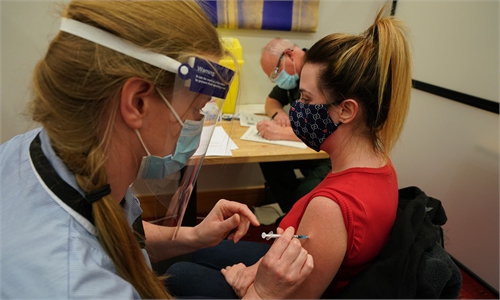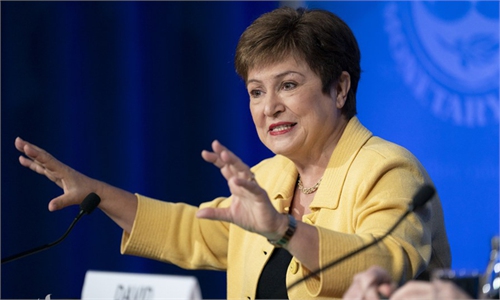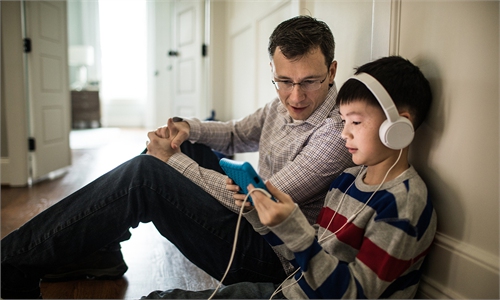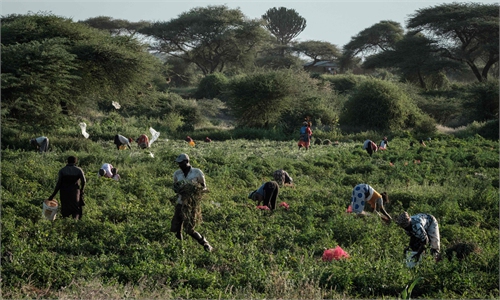New IMF reserves could fund vaccinations for low-, middle-income countries: report
IMF’s SDR reserves could quickly close vaccination funding gap
Moves to bolster the IMF's emergency reserves could provide the $44 billion needed to vaccinate 70 percent of the population in lower- and middle-income countries by the end of 2022, at no added cost to rich countries, a new Rockefeller Foundation report finds.
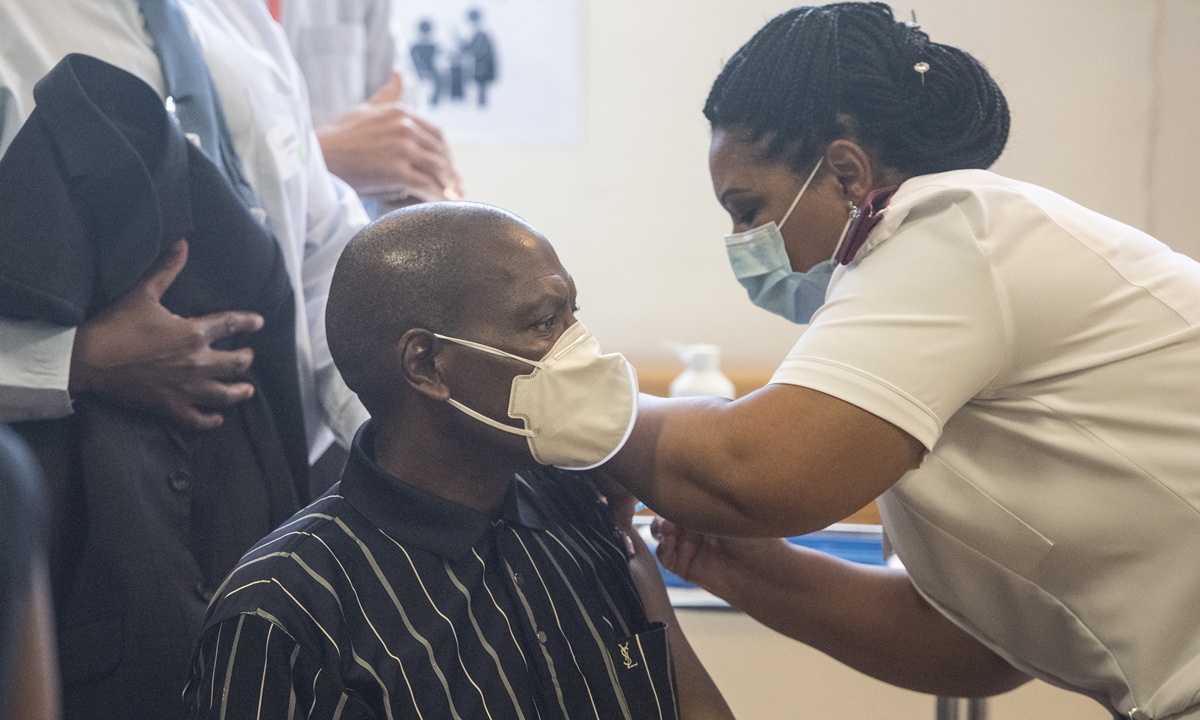
The Rockefeller report, to be released Tuesday, said rich countries could reallocate their new SDRs to quickly close the funding gap and get more people vaccinated around the world, preventing virus mutations that could stall a global recovery.
The World Bank estimates that Africa alone would need about $12 billion for COVID-19 vaccines to attain sufficient levels of inoculations to interrupt virus transmission, according to a new paper by the bank and the IMF.
The paper, published Monday, argued for an extension of the Group of 20's debt service moratorium through year-end, citing the continued high liquidity needs of developing countries and their deteriorating debt sustainability outlooks. But it said additional resources would be needed, noting that the amount of money Africa needed was about the same as the total amount of official debt service payments already deferred by 45 of the poorest countries participating in the G20's Debt Service Suspension Initiative.
The Rockefeller report noted that high- and upper middle-income countries accounted for 86 percent of COVID-19 shots administered worldwide as of the end of March. It said advanced economies should aim to reallocate at least $100 billion in SDRs to fund the vaccination drive and other measures needed to help poor and middle-income countries.
Donor countries could pledge new SDRs to the IMF's Poverty Reduction and Growth Trust, which provides loans to 63 low-income countries, but could also provide them to 16 approved institutions, including the World Bank, which could make them more widely available via low- or no-interest loans. Another option would be for those institutions to use reallocated SDRs, the report said.

Health Minister Dr Zweli Mkhize receives the COVID-19 vaccine at the launch of Western Cape COVID-19 Vaccination Programme at Khayelitsha Distrcit Hospital on February 17 in Cape Town, South Africa. Photo: VCG
Finance officials from the Group of 20 major economies are expected to back a $650 billion new allocation of the International Monetary Fund's Special Drawing Rights (SDR) this week to help countries cope with the pandemic and its economic fallout. Vaccination rates and economic development are diverging widely across the globe, according to the IMF and other experts.The Rockefeller report, to be released Tuesday, said rich countries could reallocate their new SDRs to quickly close the funding gap and get more people vaccinated around the world, preventing virus mutations that could stall a global recovery.
The World Bank estimates that Africa alone would need about $12 billion for COVID-19 vaccines to attain sufficient levels of inoculations to interrupt virus transmission, according to a new paper by the bank and the IMF.
The paper, published Monday, argued for an extension of the Group of 20's debt service moratorium through year-end, citing the continued high liquidity needs of developing countries and their deteriorating debt sustainability outlooks. But it said additional resources would be needed, noting that the amount of money Africa needed was about the same as the total amount of official debt service payments already deferred by 45 of the poorest countries participating in the G20's Debt Service Suspension Initiative.
The Rockefeller report noted that high- and upper middle-income countries accounted for 86 percent of COVID-19 shots administered worldwide as of the end of March. It said advanced economies should aim to reallocate at least $100 billion in SDRs to fund the vaccination drive and other measures needed to help poor and middle-income countries.
Donor countries could pledge new SDRs to the IMF's Poverty Reduction and Growth Trust, which provides loans to 63 low-income countries, but could also provide them to 16 approved institutions, including the World Bank, which could make them more widely available via low- or no-interest loans. Another option would be for those institutions to use reallocated SDRs, the report said.
